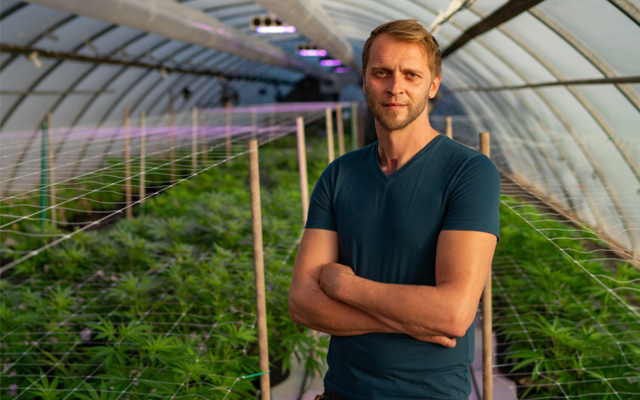What exactly is craft cannabis? For that matter, what does the word “craft” mean? If we defer to Merriam-Webster’s dictionary, we see that “craft” refers to “an occupation or trade requiring manual dexterity or artistic skill.” Craft products differ from standard, mass-produced goods by being both adventurous and unique. For a deeper dive into the complexity of craft cannabis, let’s turn for a moment to the beer industry.
What does craft cannabis have to do with beer, you might ask? Well, let’s take Budweiser, for instance. The mega-corporation offers several stalwart, reliable ales that epitomize their brand. They crank these standards out dependably and efficiently, without delving too deeply into the nuanced complexity of beer production. On the other hand, a craft brewery such as Wicked Weed Brewing experiments with novel tastes, local and sustainably sourced ingredients, and innovative styles as a matter of procedure, continually releasing innovative new products to the public.
Here in Asheville, North Carolina, also known as “Beer City, USA,” we experience the craft cannabis industry in much the same way as our craft brewing colleagues — a playground of limitless potential and infinite space for personal and creative expression. In the large-scale, mass production of cannabis, laborers are generally provided with a single, repetitive and often mechanical task to perform, day in and day out. These rote tasks neither require the employee to develop true skill, nor allow them to contribute their own unique and creative flair to the product; the maker’s relationship to the final product is therefore very limited — so, too, is the consumer’s.
In contrast, craft cannabis, especially here with my team and I at Asheville Craft Cannabis, is guided by a singular belief that craft cannabis products are those that take on a life and soul of their own; they are more than simply consumed — they are experienced. As such, each of us are creators, skilled artisans and makers who play an integral role in every step of the production process, from seed to shelf. Ultimately, the power of craft cannabis lies in its story. Each product tells a tale, not only of the transformative and healing power of this ancient plant, but of its connection with the passionate, creative and skilled artisans that lovingly nurture it.
How a cannabis product is cultivated and created lends itself to whether or not it will be considered to be “craft” by someone who I may refer to as a “canna-seur.” For example, bio-dynamic farming takes a regenerative approach that emphasizes self-sustainability. Biodynamic methods never use GMOs, synthetic chemicals, fertilizers, or pesticides. Instead, they integrate plants, animals, water, air, and soil into a regulating ecosystem. Asheville Craft Cannabis was proud to be the first producer of Demeter Certified Biodynamic hemp products in the United States, grown on our certified organic, and biodynamic farm in Western North Carolina.
Biodynamic also goes beyond organic. Receiving Demeter certification mandates adherence to rigorous standards in regard to imported fertility, disease, pest and weed control, water conservation and biodiversity in addition to the criteria outlined by the National Organic Program.







Craft cannabis could get some legal support if people contacted their members of Congress about reconstructing the Federal definition of marijuana to remove its features of racism, duplicity, and circumlocution, and include the perimeter of Federal prohibitions of cannabis use that codify the original intent, common sense, context, and promise of the 2nd, 4th, 9th, 10th, and 14th Amendments, to restore and protect the Powers of the States to create fair laws to control the rights of the People to again grow and carefully use any cannabis plant that is included under the archetypal designation of Cannabis sativa L., like this:
(21 U.S.C. 802(16)) The term “marijuana” means all parts of the smoke produced by the combustion of the plant Cannabis sativa L., which is, as are the viable seeds of such plant, prohibited to be grown by or sold by any publicly traded corporation or subsidiary company, and such smoke is prohibited to be inhaled by any child or by any person bearing any firearm, as is their intake of any part or any product of such plant containing more than 0.3% THC by weight unless prescribed to such child by an authorized medical practitioner.